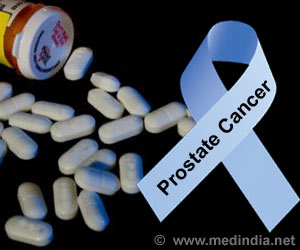Psychological support is unavailable to one in three cancer patients due to an inefficient health system. Increase in healthcare efficiency will ensure that all cancer patients receive adequate care.
- One in three cancer patients don’t receive psychological support
- It occurs due to multiple factors, but mostly an inefficient health system
- Improvements in healthcare efficiency will ensure better access to supportive psychological care
Dr. Matti Aapro, who is a Member of the Board of Directors at the Genolier Cancer Center, Genolier, Switzerland and Member of the All.Can International Steering Committee said: “Psychological support is now recognized as an essential component of quality multidisciplinary cancer care and should be available to all cancer patients. Unfortunately, this often does not happen in practice - this is an important gap that needs to be filled.”
Read More..
Facts about Cancer & Cancer Patient Care
- 17 million new cancer cases are diagnosed annually worldwide
- 9.6 million people die annually from cancer worldwide
- Faster cancer diagnosis improves patient survival and reduces treatment costs
- Shared decision-making improves patient outcomes
- Cancer patients with depression have a 39 percent higher risk of death and higher healthcare expenditure
- As per WHO, 20 percent of health expenditure is wasted on inefficient treatment and care
- As per the International Psycho-Oncology Society (IPOS), significant gaps exist in access to psycho-oncology services in Europe
- As per IPOS, 40-60 percent of cancer patients and their families experience psychological stress in Europe, but only a minority receive psychological support
- Economic burden from lost productivity due to cancer is €52 billion annually in the European Union
Survey Design
- The questionnaire was developed by All.Can International and Quality Health, a survey provider, based in Chesterfield, Derbyshire, UK
- The questionnaire was validated by experts and tested on patients prior to the survey
- This was primarily an online survey
- The survey was conducted between January to November 2018
- The survey was conducted in the following ten countries: UK, USA, Canada, France, Belgium, Sweden, Italy, Poland, Spain, and Australia
- The participants included both current and past cancer patients and their carers
- The survey included participants of all ages with all types of cancer
- The total number of participants was around 4,000
Survey Findings
- 69 percent of respondents said they required psychological support, during or after cancer treatment
- 34 percent of respondents who required help said that it was not available
- 41 percent of respondents said they were not provided any information about support groups by their cancer care team
- The respondents said that even when psychological support was available, it was not always appropriate or helpful
“Mental distress is common among cancer patients and can result in difficulty processing information, regretting decisions about treatment choices, and fear of their cancer coming back,” said Alex Filicevas, Head of EU Affairs at the European Cancer Patient Coalition based in Brussels, Belgium. “However, this new research highlights that the psychological and emotional aspects of cancer care are sadly often forgotten in cancer care.”
Key Recommendations
- 26 percent received an initial diagnosis that was inefficiently delivered
- 32 percent were initially misdiagnosed
- 47 percent were not involved in decision-making regarding treatment
- 39 percent were never, or sometimes provided psychological support
- 69 percent needed psychological support
- 34 percent didn’t have access to psychological support
- 24 percent didn’t have access to allied health professionals
- 26 percent reported loss of income due to absence from work
- 36 percent reported travel costs for availing treatment as a financial burden
Concluding Remarks
“It is so important that, as physicians, we listen to what patients are telling us in this survey,” said All.Can International Member, Professor Christobel Saunders, AO, FRCS, FRACS, who is a breast cancer surgeon and Professor of Surgery and Head of Division in the Faculty of Health and Medical Sciences at the University of Western Australia, Perth, Australia. “Each of the areas identified represents an opportunity to improve cancer care for patients and provide truly patient-driven care.”The authors are hopeful that the findings of the survey will encourage policymakers and the cancer community as a whole to take action so that there is a marked improvement in patient outcomes and experiences of cancer care, as well as a reduction in the financial burden of cancer on patients, their families, the health system, and the society.
Funding Source
The survey was funded by Bristol-Myers Squibb, Roche, Amgen, Merck Sharp & Dohme (MSD), Johnson & Johnson, and Baxter.Reference:
- Patient Insights on Cancer Care: Opportunities for Improving Efficiency - (https://www.all-can.org/what-we-do/research/patient-survey/)
Source-Medindia















